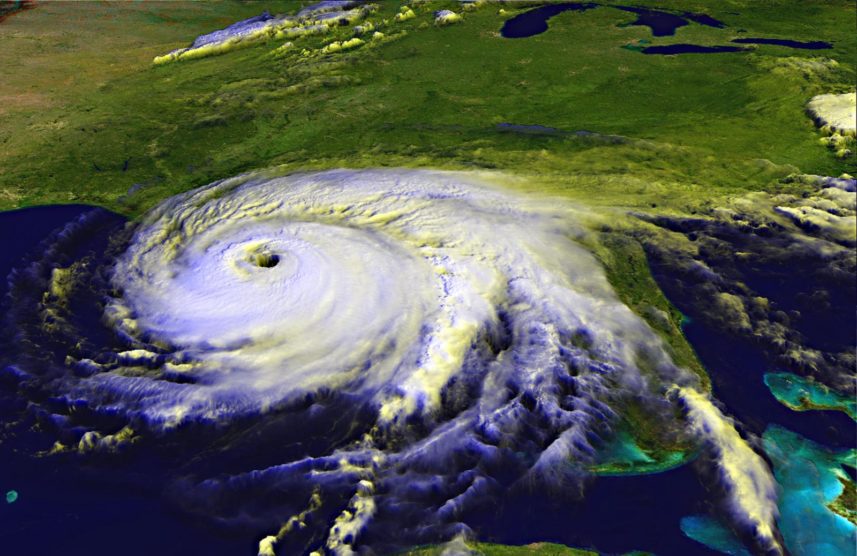A hurricane can have devastating effects for residential and commercial property owners. For most people, a home is their biggest financial investment and failing to properly protect that investment can negatively impact your finances. As a home and property owner, you need to treat an insurance claim seriously and with great care to ensure your asset is protected and does not lose value.
1. Get a Copy of Your Insurance Policy
It is important to find out what kind of coverage you have. Some damage caused by a hurricane may be covered while other damage may not. For instance, homeowners insurance policies do not cover damage from flood. If you live in a flood prone area, you may have been required to purchase a separate flood insurance policy. You could also have a flood insurance policy that was placed on your home by your mortgage company. If you are uncertain whether your home has flood insurance, search through your records and call your mortgage company to find out.
2. Call Your Insurance Company and Agent
You have an obligation under your homeowners insurance policy to provide the insurance company with prompt notice of any loss or damage. Do not wait. Call your insurance company and agent immediately after your home has been damaged. Some insurance policies require that you either contact your agent or your insurance company. However, it is best to contact both. If you do not promptly report the damage to your insurance company, it could deny your claim. The insurance company will then assign the claim to an insurance adjuster who will inspect your home and the damage.
3. Document the Damage
Take plenty of pictures of the exterior and interior of your home to document the damage. It is also recommended that you maintain a list of damaged property. This includes a separate list of any damaged contents and personal belongings. If you have any receipts for personal belongings or furniture that has been damaged, please locate and organize those too.
4. Make Temporary Repairs
You have an obligation under the insurance policy to protect and prevent further damage to your home. For example, if during the event your home suffered roof damage, it is prudent to pay a roofing company to place a tarp on your roof to prevent further water intrusion. Please keep in mind that the insurance adjuster needs to be able to remove the tarp during the inspection to properly inspect the roof.
While you have an obligation to prevent further damage, do not make any additional repairs above and beyond what is necessary to prevent further damage prior to the insurance company’s inspection. The insurance company is entitled to inspect the damage, and by making repairs, you are preventing the insurance company from doing so. If temporary repairs are needed to prevent further damage, make sure you properly photograph the damage prior to making the repairs and that you also keep all of the receipts with proof of payment.
5. Allow your Insurance Company the Opportunity to Inspect Your Home
Do not disregard any damaged property or remove too much debris before the insurance company has an opportunity to inspect. You need to make your property available for inspection and cooperate with the insurance company. After the inspection, the insurance company will either deny or make payment on your claim.
6. Contact a Licensed and Reputable Contractor
Do not accept the insurance company’s valuation of your claim. Often times, the insurance company will underpay your claim. This part of the process is critical to your claim. A licensed and reputable contractor can assist you with properly assessing the true and accurate value of your loss. After a major hurricane, a lot of contractors and companies, unfortunately, prey on homeowners who are going through a hard time dealing with the aftermath of a hurricane. This is why it is important you verify that any contractor you contact is licensed and insured, and that you also check references.
Once you have settled on a reputable contractor, he or she will inspect your home and prepare an estimate of the cost to repair the damage. If the payment you received from the insurance company is less than what is required to restore your property, you can and should submit the contractor’s estimate or proposal to the insurance with a demand for a supplemental payment.
7. Keep a Written Log with Important Information
From the start, make sure you keep a written log with a timeline of events, which should include any communications with your insurance company, adjuster, and contractor. Include information such a date of conversations, letters, emails, whom you spoke with, and a brief summary of the contents. In your written log, also include any communications with contractors or persons you’ve contacted to make repairs or provide you with a quote for repairs. Do not share your written log with the insurance company. This is for your records and for your attorney, in the event you run into problems and need assistance with your claim.
